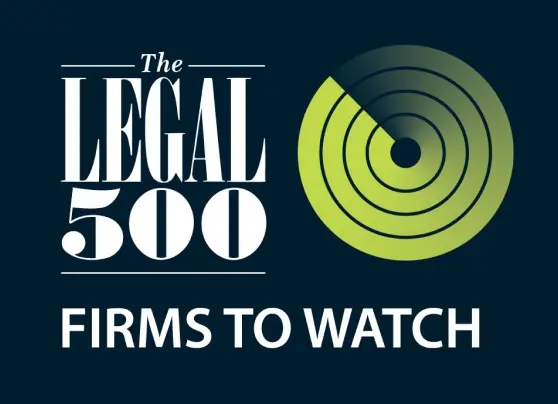Spouse Visa Income Requirements Announcement
In a pivotal move, the UK government and the Home Secretary, James Cleverly announced a series of new rules and changes on 21st of December 2023. A notable change was regarding the immigration policy concerning new income requirements for spouse visa applicants. Set to take effect from April 2024, this adjustment sees a substantial increase in the minimum income requirement for those seeking to join their partners in the UK. The figure, previously set at £18,600, will now rise to £29,000, followed by gradual increases to £38,700, marking a significant shift in the financial threshold for applicants.
Context of the Change
This announcement is the most recent in a series of changes to the UK’s immigration policies, which include the Government’s commitment to lower net migration.
Prior to this, there were increases in application fees and news of a planned rise in the Immigration Health Surcharge, set for January 2024.These changes collectively signal a tightening of policies governing immigration and the terms under which individuals can enter and reside in the UK.
Detailing the New Requirements
Under the revised rules, applicants for a UK partner visa must prove they earn a minimum annual income significantly higher than the current requirement. This increase not only affects individual applicants but also extends to those bringing children to the UK who are neither British nor settled.
Currently, applicants require an additional £3,800 per annum for the first child and £2,400 for each subsequent child. While the government has not specified the exact revised amounts for dependents, they are expected to align with the overarching increase in the minimum income requirement.
These changes represent a major policy shift and are likely to have large implications for those planning to apply for partner visas to the UK. The elevated financial threshold poses a new set of challenges, requiring careful consideration and planning from prospective applicants.
Significant Consequences for Families
The implementation of these revised immigration rules in spring 2024 marks a significant turning point for many families.
With the increased income threshold, a large proportion of British citizens may find themselves unable to meet the financial criteria necessary to bring their spouses or family members to the UK.
This change has the potential to impact numerous married couples, potentially leading to situations where one spouse is stranded abroad.
Furthermore, the ability of families to stay united or reunite in the UK will be severely tested, particularly affecting children, parents, and other close relatives.
Workers & Students: A Shift in Landscape
The ripple effects of this policy reform extend beyond families, affecting both workers and students. The increase in the skilled worker salary threshold to £29,000 (with an exemption for the care sector) represents a considerable increase in financial requirements. This alteration will inevitably reshape the demographic of skilled workers able to meet these criteria.
Additionally, the government’s decision to end the 20% salary discount for roles on the Shortage Occupation List, coupled with the planned reforms to this list, is set to redefine the skilled migration landscape.
For students, the government’s review of the graduate route aims to tighten the criteria, aiming to prevent misuse and maintain the integrity of the UK’s higher education sector. This scrutiny may lead to more stringent conditions for students wishing to transition from education to employment within the UK.
Related Articles:
Appendix FM: Minimum Income Threshold for UK Spouse Visa
How to Switch from a Dependent Visa to a Work Permit (skilled worker visa) in the UK
New UK Immigration Changes for Spring 2024
Migration and Socio-Economic Impacts
The government anticipates that these changes will lead to a reduction of around 300,000 in net migration. This projection, if realised, could have significant socio-economic implications, particularly in sectors reliant on migrant workers, such as health and care. The policy’s impact extends beyond immigration statistics; it has the potential to reshape the fabric of communities and the dynamics of the UK workforce.
For many, the introduction of these rules represents more than just a policy shift; it symbolises a challenging new era in the UK’s approach to immigration, with tangible effects on the lives of families, workers, and students from around the globe. The need for careful navigation through this changing landscape has never been more pressing.
What constitutes the minimum income?
The minimum income requirement can be met through various sources, including employment in the UK, self-employment, pension income, property rental earnings, or savings. It’s crucial to note that the type of income and its calculation can vary depending on whether one is applying for a visa, leave to remain, or settlement.
Can income from different sources be combined?
Yes, income from different sources can be combined to meet the requirement. For instance, employed income can be merged with savings. However, there are restrictions when combining employed income with self-employed income or dividend income from certain categories.
Exemptions and Special Considerations
Are there exemptions to the minimum income requirement?
Yes. If your partner is receiving certain UK benefits, like Personal Independence Payment or Carer’s Allowance, the standard minimum income requirement is replaced by a need to demonstrate ‘adequate maintenance’. Families that have a British child, or a child who has resided in the UK for a minimum of seven years, may also qualify for exemptions, provided certain conditions are met.
What happens if I cannot meet the minimum income requirement?
If you don’t have an exemption and can’t meet the requirement with accepted methods, your application may still be approved if denying it would result in ‘unjustifiably harsh consequences’ for you, your partner, or a child who is relevant to the case.In certain cases, you might be placed on a ’10-year route to settlement’ instead of the usual five years.
Preparing for the increase in Minimum Income requirement
How can I prepare for the increase?
If you’re planning to apply for a partner visa, consider applying before the new rules take effect. Review your financial plans, especially if you intend to rely on savings, as the required amount is expected to increase substantially. For those already in the UK on a family visa, staying informed about transitional provisions and potential concessions from the government is crucial.











